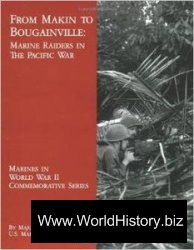One of the most important critiques of agency theory to date has been the anti-essentialist argument brought to bear by feminist scholars in particular. Most often, the active agents with whom our models of prehistory are populated are conceived as a homogeneous lot having similar basic traits, skills, and goals. Typically, these agents are constructed as essentialized acultural, ahistorical, and atomistic beings with rational, capitalist, cost/benefit analyzing impulses. As Joan Gero notes, though it is not often articulated, it also seems to be commonly assumed that since these individuals have agency by definition, they are gendered male and colored powerful. In answering this critique, some have called for historicizing the notion of agency, identity, and the individual by situating these notions in their own unique culture historical context. A taking to heart of the dialectical relationship within which agency and structure exist would seem to obviate this problem as structures are not uniform across time or cultural space and hence we would not expect agency to be either.
As is true for most forms of archaeological interpretation, agency-centered models are also vulnerable to the projection of our own values onto the past. Such concern has been expressed with regard to the inherent emphasis placed on the autonomy of the individual and individual agency in practice theory. Various scholars have suggested that such an orientation simply mirrors contemporary western society and politics. Similarly, while the issue of having and constructing personal identities is a pervasive theme of modernity, it has not necessarily been so prevalent a concern in other times and places. From an epistemological standpoint, the privileging of agency as the most significant element in theories of social change necessarily grants individuals and their self-interested actions primacy at the expense of other modes of social interaction such as empathy or concordance. In sum, the uncritical application of agency theory in archaeology runs the risk of reproducing, if not naturalizing, the political relations and asymmetries that structure our present lives.
Another point of concern revolves around the tendency to conflate agency with the actor and thus assume that evidence of agency is evidence for individuals or subjects in the archaeological record. It has been noted that while agency is a socially significant quality of action, it must be understood as both more and less than mere action. As with gender studies, becoming caught up in the search for individuals risks displacement of what should be the primary objectives of identifying and understanding the contexts, structures and intersubjective dynamics through which agents expressed themselves. The task is not so much to recover agency archaeologically as to recognize that human agency is inherent in the material remains. As Marcia-Anne Dobres has repeatedly pointed out, we do not have to find individuals in order to theorize about processes of agency in prehistory.
Many scholars have argued for the central importance of agency in archaeological interpretation and the productive utility of working within this paradigm is attested by numerous recent studies. It should be clear, however, that the study of agency cannot be divorced from the study of the structures, systems, and habitus within which past lives were lived. It is also clear that archaeologists need to generate more nuanced understandings of agents and agency by incorporating concerns with social heterogeneity, gender, and identity into their analytical frameworks. Agency-based theories also need to broaden the concept of the individual beyond the liberal western sense of ‘free agents’ to include a more relational perspective. Agency should not be understood as simply located within bounded human bodies but rather within the wider sets of human relationships that make up the social person.
Beyond human agency, such a theoretical orientation also holds much promise for furthering our models and understandings of material culture. Given that social agency is not co-terminous with the human body, we may begin to consider how objects, as material extensions of the agency of those who produced them, participate in this system of social relationships. Following Alfred Gell’s pioneering work in this area of investigation, we may begin to think about how personhood is augmented, extended, and distributed among the many objects fashioned and employed in social action.
See also: Engendered Archaeology; Evolutionary Archaeology; Philosophy of Archaeology; Postproces-sual Archaeology; Processual Archaeology.




 World History
World History





![Stalingrad: The Most Vicious Battle of the War [History of the Second World War 38]](/uploads/posts/2015-05/1432581864_1425486471_part-38.jpeg)



